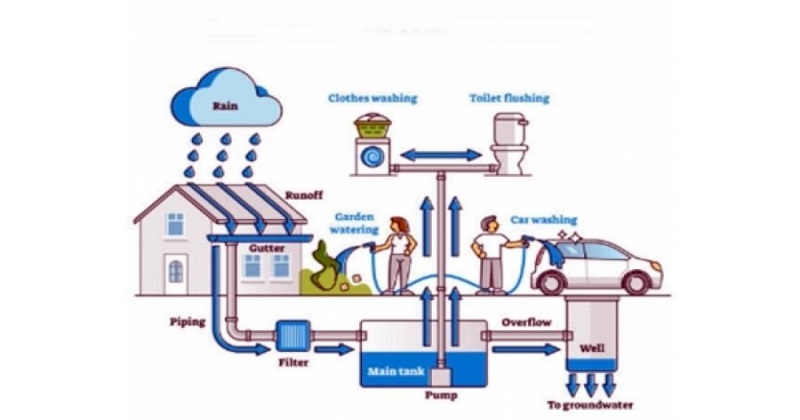
New Delhi: Water Minister Satyendar Jain said on Monday that the Delhi Jal Board (DJB) would provide financial assistance up to Rs 50,000 and a 10% rebate on water bills to residents who install rooftop rainwater harvesting (RWH) systems. ‘For the installation of RWH systems, the government will provide financial assistance of 50% of the cost, up to a maximum of Rs 50,000, along with a 10% rebate on water bills,’ said Jain, who is also the chairperson of the DJB.
According to a DJB statement, plots measuring between 100 square metres and 199.99 square metres will receive a financial assistance of 50% of the total cost of the RWH structure or Rs 10,000, whichever is less. Similarly, Rs 20,000 or 50% of the cost of the RWH structure will be given for plots measuring between 200 sq m and 299.99 sq m, and so on.
Read also: Tamil Nadu to release 700 life convicts tomorrow: MK Stalin
Jain announced the DJB would also implement the In-line Rainwater Harvesting (RWH) system, which is proven to be as cost-effective as it is efficient and is being implemented in the tribal-dominated district of Dungarpur in Rajasthan. The reason for adopting this model is that it does not require a heavy installation set-up. According to him, conventional RWH systems require a set-up cost of Rs 75,000 to Rs 1 lakh. However, the Inline RWH System can be installed for as little as Rs 16,000, he said. ‘This model uses innovative techniques and is centred on routing the rainwater directly to a bore well, instead of a regular rainwater-harvesting pit. The rainwater gets filtered within the pipe, removing any need for an additional filter system and harvesting pit. The In-line Rainwater Harvesting System comprises of a pipe filter installed horizontally in the rainwater pipe. This pipe is then connected to non-functional and defunct bore wells. The filter media of the Inline Rainwater Harvesting System has a Geotextile membrane as cover, at the mouth of the rainwater pipe. This is followed by wire mesh at the entry point of the different media. This includes coarse sand, gravel/stone aggregate, gravel/stone aggregate. The total length of the filter media is around 90 cm,’ he said.
Delhi Jal Board previously issued guidelines mandating that owners of properties measuring 100 square metres and above install RWH structures. The last date for implementing RWH provisions has now been extended to December 31, 2021. Additionally, DJB certification for rainwater harvesting systems will no longer be required. ‘The Kejriwal government has also relaxed the compliance guidelines…the installed RWH systems can be certified by an architect registered with the Council of Architecture on the condition that the structure is made as per DJB guidelines,’ the statement said.

Post Your Comments